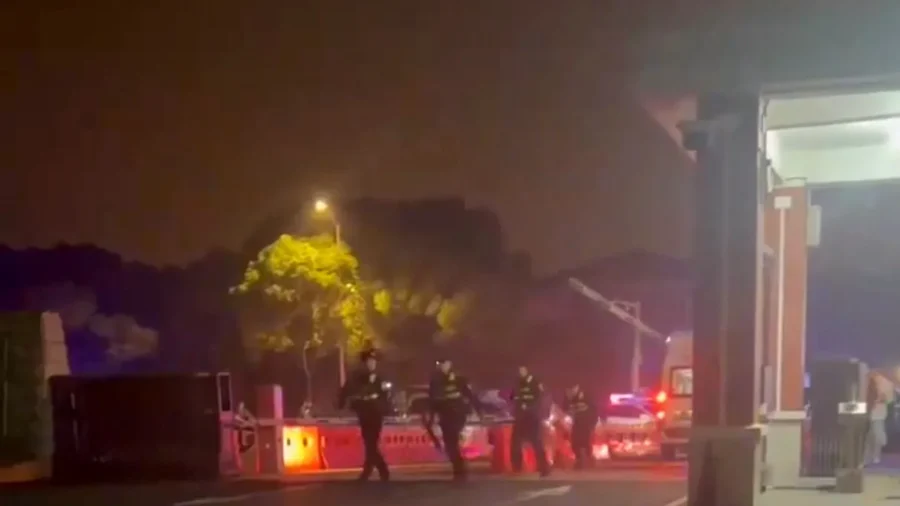BEIJING—A former student went on a stabbing rampage at a vocational college in eastern China, killing at least eight people and injuring 17, police said on Sunday, just days after the deadliest attack in the country in a decade.
Saturday’s knife attack took place at the Wuxi Vocational College of Arts and Technology in Yixing, part of Wuxi city in the eastern province of Jiangsu. The suspect, a 21-year-old man, was arrested at the scene and confessed, police said.
Also on Saturday, authorities in the southern Chinese city of Zhuhai said they had charged a 62-year-old man after he rammed his car into a crowd outside a sports stadium, killing at least 35 people and injuring 43 on Monday night.
The actual number of casualties from such events may be much higher as the Chinese regime routinely suppresses or alters information.
In both cases, the suspects lashed out with fatal violence against unrelated bystanders after suffering an economic loss, according to the sparse details released by police.
The killings touched off a rare and heavily censored online discussion over mental health in China, deeper stresses as the country’s economy slows and whether young people will find themselves worse off than generations before them.
At least six other high-profile knife attacks have been recorded this year across China.
Police in Wuxi said the stabbing suspect was angry over not getting his graduation certificate and failing an exam.
“According to preliminary investigations, the suspect … attacked others after failing an exam and not receiving his graduation certificate, as well as being dissatisfied with his internship compensation,” the Yixing Public Security Bureau said in a statement.
The Zhuhai suspect was reportedly angry at the terms of a divorce settlement, police there said.
Qu Weiguo, a Fudan University professor, said the recent cases of “indiscriminate revenge against society” in China had some common features: disadvantaged suspects, many with mental health issues, who believed that they had been treated unfairly and who felt they had no other way to be heard.
“It is important to establish a social safety net and a psychological counseling mechanism, but in order to minimize such cases, the most effective way is to open public channels that can monitor and expose the use of power,” Qu posted on the Chinese social media platform Weibo.
The short essay had been removed by the censors by Sunday afternoon.
Wuxi Vocational College offers courses to prepare students to work in industries including wire and cable manufacturing, interior design, marketing and other fields, its website says.
The junior college and others like it are part of a drive to direct more young people into job-specific training instead of oversubscribed universities. That movement has been held back by the stigma attached to vocational college instead of a competitive university, analysts say.
Trending online discussion topics over the past year have put a focus on the diminished optimism in China about a turnaround for jobs, income, and opportunity. One of those—”the garbage time of history”—took off in the summer as a shorthand for economic despair.

